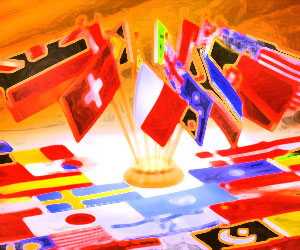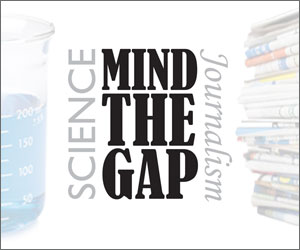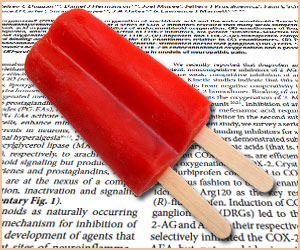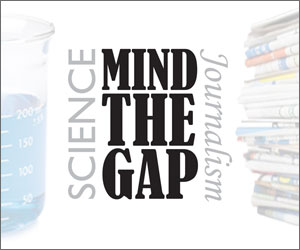I was wondering if you could settle an argument for me – what came first: the grad student or the PI?
-EJ, grad student
We’re following in the tradition of open discussions among scientists that has resulted in important advances in both science and society.
by
I was wondering if you could settle an argument for me – what came first: the grad student or the PI?
-EJ, grad student
by
 Right now I’m in “pre-conference crunch mode” along with “manuscript writing mode” so “digging through popular science posts” has taken a bit of a back seat. Please forgive me! I do have some good ones saved for next month, but for now I want to follow up on last month’s analysis of science in the media. Then I focused on the big TV network’s websites, and how the displayed science news. This month I’ve picked some of the top English speaking newspapers from around the world (four from the US, one from the UK, and one from India) to see how THEIR website’s fair.
Right now I’m in “pre-conference crunch mode” along with “manuscript writing mode” so “digging through popular science posts” has taken a bit of a back seat. Please forgive me! I do have some good ones saved for next month, but for now I want to follow up on last month’s analysis of science in the media. Then I focused on the big TV network’s websites, and how the displayed science news. This month I’ve picked some of the top English speaking newspapers from around the world (four from the US, one from the UK, and one from India) to see how THEIR website’s fair.
by
My parents are both non-scientists and have no idea what I do, despite hours of attempted explanations. Am I a jerk for getting frustrated at their lack of ability to grasp my project?
-Short fuse, graduate student
by
 Isn’t the official language of science…science? Well, there’s no doubt science is a language of it’s own, but international conferences have opted for English as the primary means of communication. Talks, poster sessions, and exhibit halls all expect registrants to speak the same language. Yet once everyone returns home to their respective labs, should the language rules still apply?
Isn’t the official language of science…science? Well, there’s no doubt science is a language of it’s own, but international conferences have opted for English as the primary means of communication. Talks, poster sessions, and exhibit halls all expect registrants to speak the same language. Yet once everyone returns home to their respective labs, should the language rules still apply?
by
 “Grr”. That’s about as close to impersonating a lion’s roar that you, or I, or even Austin Powers, will ever be able to get, thanks to the lack of fat in our vocal folds.[Continue Reading…]
“Grr”. That’s about as close to impersonating a lion’s roar that you, or I, or even Austin Powers, will ever be able to get, thanks to the lack of fat in our vocal folds.[Continue Reading…]
by
 In our publication-dominated world decisions about graduating, funding and hiring depend heavily upon the number and quality of our manuscripts. As a result, setting an author byline can be contentious to say the least. While three positions are widely regarded as the most important – first, second and the corresponding author – there is another option that is frequently treated like the red-headed stepchild of the byline: the co-first author.
In our publication-dominated world decisions about graduating, funding and hiring depend heavily upon the number and quality of our manuscripts. As a result, setting an author byline can be contentious to say the least. While three positions are widely regarded as the most important – first, second and the corresponding author – there is another option that is frequently treated like the red-headed stepchild of the byline: the co-first author.
by
More than half of our lab is made up of international students and postdocs. This is a good thing- except at lunch. By the time the microwave is done warming up everyone’s food, the smell is soooo bad that sitting in the lunchroom is unbearable. Most of our lab eats together and were it not for the smell, it would be fun. Is there anything I can do to fix this without seriously offending someone or missing out on group lunch?
– Claire, grad student
by
 When I was in my first year at college I went to a hypnotism “show”, or “exhibition”, or “demonstration”… I don’t know … anyway, a hypnotist came and hypnotized people. Being naturally curious, I volunteered. Also, either because of my natural skepticism or through the incompetence of the hypnotist I failed to become entranced. But a friend of mine was. She was told to imagine the boy next to her naked, and immediately burst out laughing. When the hypnotist asked her why she was so amused, she gave a telltale gesture with her pinky finger.
When I was in my first year at college I went to a hypnotism “show”, or “exhibition”, or “demonstration”… I don’t know … anyway, a hypnotist came and hypnotized people. Being naturally curious, I volunteered. Also, either because of my natural skepticism or through the incompetence of the hypnotist I failed to become entranced. But a friend of mine was. She was told to imagine the boy next to her naked, and immediately burst out laughing. When the hypnotist asked her why she was so amused, she gave a telltale gesture with her pinky finger.
by
 This month for “Sensational Science” I decided to resist my go-to sensational blogs and look around some popular press (OK, TV). How popular? I’m talking ABC, FOX, BBC, etc. It doesn’t get more popular than that. But before I get into some of the misleading headlines these giants dole out, I want to take a moment to reflect on the prominence of science news in the most popular of presses: the websites of these TV organizations. For lack of a better order, I’ll go alphabetical.
This month for “Sensational Science” I decided to resist my go-to sensational blogs and look around some popular press (OK, TV). How popular? I’m talking ABC, FOX, BBC, etc. It doesn’t get more popular than that. But before I get into some of the misleading headlines these giants dole out, I want to take a moment to reflect on the prominence of science news in the most popular of presses: the websites of these TV organizations. For lack of a better order, I’ll go alphabetical.